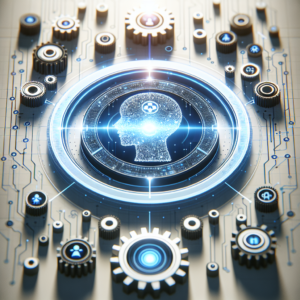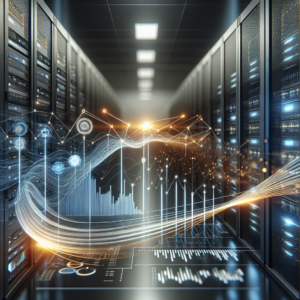What does the future hold for Artificial Intelligence?
As I ponder this question, I’m filled with both excitement and a sense of responsibility. The journey of AI is a fascinating one, marked by incredible advancements and the promise of even more revolutionary changes. In this article, I’ll share my thoughts on AI’s potential future, discussing various aspects, implications, and trends that we might encounter along the way.
Understanding Artificial Intelligence
Artificial Intelligence, often abbreviated as AI, refers to machines designed to simulate human intelligence. This includes learning, reasoning, problem-solving, perception, and language understanding. The term encompasses several technologies, including machine learning, natural language processing, and robotics.
Brief History of AI
To truly appreciate the future of AI, it’s essential to look back at its beginnings. The concept of intelligent machines traces back to ancient history, but it wasn’t until the mid-20th century that significant progress was made. The 1956 Dartmouth Conference is often considered the birth of AI as a field, where key figures in computer science gathered to discuss the potential of “thinking machines.”
Key Milestones in AI Development
-
The Turing Test (1950): Proposed by Alan Turing, this test measures a machine’s ability to exhibit intelligent behavior indistinguishable from that of a human.
-
Early AI Programs (1950s-1960s): Programs such as ELIZA and SHRDLU showcased language processing capabilities.
-
Expert Systems (1970s-1980s): These were designed to mimic human experts in specific fields, such as medical diagnosis.
-
The AI Winter (1980s-1990s): Interest and funding in AI fluctuated, leading to periods of reduced activity known as AI winters.
-
Deep Learning Breakthroughs (2010s): The resurgence of neural networks greatly advanced image and speech recognition capabilities, pushing AI into the forefront.
Current State of AI
Today, AI has become integrated into many aspects of daily life, from virtual assistants like Siri and Alexa to recommendation algorithms on platforms like Netflix and Spotify. The breadth of AI applications is staggering, and businesses around the globe are leveraging AI to enhance efficiency, improve customer experiences, and drive innovation.
The Future of AI Technologies
As I look towards the future of AI, several key technologies stand out. Each holds the potential for profound impacts across various sectors.
Machine Learning and Deep Learning
Machine Learning (ML) is an essential subset of AI that focuses on developing algorithms that allow computers to learn from and make predictions based on data. Deep Learning, a type of ML, utilizes neural networks to process vast amounts of data with remarkable accuracy.
Implications of ML and Deep Learning
-
Personalization: By analyzing user data, AI can create more personalized experiences in marketing, healthcare, and education.
-
Automation: Routine tasks can be automated, leading to increased efficiency but also raising questions about job displacement.
Natural Language Processing (NLP)
NLP enables machines to understand, interpret, and generate human language. From chatbots to sophisticated customer service interfaces, NLP is reshaping how we communicate with technology.
Future Directions for NLP
-
Emotional Intelligence: There’s an emerging focus on developing AI that can understand and respond to human emotions, enhancing the user experience.
-
Multilingual Capabilities: As globalization continues, the ability for AI to process multiple languages will become increasingly important.
Robotics and Autonomous Systems
Robotics, combined with AI, is set to change industries like manufacturing, logistics, and healthcare dramatically. Autonomous systems can operate without human intervention, which opens up many opportunities.
Key Developments in Robotics
| Advancement | Description | Potential Impact |
|---|---|---|
| Autonomous Vehicles | Self-driving technology reducing accidents and enhancing transport efficiency. | Transformation of transportation systems. |
| Precision Agriculture | AI-driven robots optimizing agricultural practices. | Increased crop yields and sustainability. |
| Healthcare Robots | Robots assisting in surgeries and patient care. | Enhanced patient outcomes and efficiency. |
Computer Vision
Computer Vision enables machines to interpret and understand the visual world. Applications are vast, from security systems to medical imaging.
Advancements and Applications
-
Facial Recognition: Streamlining security and personalized marketing.
-
Object Detection: Enhancing safety in self-driving cars.
Ethical AI
As AI technology advances, ethical considerations will become increasingly vital. Questions surrounding data privacy, algorithmic bias, and accountability must be addressed.
The Importance of Ethics in AI Development
-
Transparency: Understanding how AI systems make decisions is crucial to building trust.
-
Fairness: Ensuring that AI algorithms do not perpetuate biases is a significant challenge.
-
Accountability: Establishing who is responsible for AI actions will be essential as technology continues to evolve.
Impact of AI on Employment
With all advancements, one of the most discussed topics is the impact of AI on jobs. I often wonder how these technologies will transform the workplace.
Job Displacement vs. Job Creation
-
Displacement: AI and automation may render specific jobs obsolete, particularly those involving repetitive tasks.
-
Creation: On the flip side, AI will likely create new job categories, such as AI ethics compliance officers or AI trainers.
The Importance of Reskilling
This transformation in the job market highlights the necessity for reskilling the workforce. Lifelong learning will become a cornerstone of professional development, enabling individuals to adapt to the changing demands of the job market.
AI in Various Industries
AI is expected to touch almost every industry. Below, I break down how various sectors are likely to evolve with AI integration.
Healthcare
AI’s potential to revolutionize healthcare is astounding. From diagnosis to patient care, AI can enhance efficiency and accuracy.
- Predictive Analytics: Employing AI to anticipate patient needs and outbreaks.
- Telemedicine: Facilitating remote consults and monitoring through AI-driven platforms.
Education
AI’s integration into education can personalize learning experiences.
- Adaptive Learning Platforms: Tailoring educational content to individual learning styles and paces.
- AI Tutors: Providing supplemental support outside traditional classroom settings.
Finance
In finance, AI can improve risk assessment, fraud detection, and customer service.
- Algorithmic Trading: Using AI to analyze market trends and make real-time trading decisions.
- Customer Service: Chatbots handling routine queries and transactions.
Transportation
The transportation industry stands on the brink of a massive transformation due to AI.
- Smart Traffic Management: AI systems optimizing traffic flow in real-time.
- Autonomous Delivery: Drones and robots potentially changing how goods are delivered.
Retail
AI is reshaping the retail industry by providing unparalleled insights into customer behavior.
- Inventory Management: AI predicting demand for products effectively.
- Personal Shopping Assistants: Enhancing the shopping experience through personalized recommendations.
The Role of AI in Society
As I reflect on AI’s implications for society, I feel we need to consider its broader impact on culture and human relationships.
AI and Human Interaction
- Changing Communication: AI interfaces changing how we interact with technology and each other.
- Enhanced Accessibility: AI can assist individuals with disabilities, making technology more accessible.
Information and Misinformation
AI’s ability to generate content raises questions about trust and authenticity. Disinformation campaigns using AI-generated media could have significant consequences.
- Combating Misinformation: Developing AI tools to identify and flag misleading information.
The Future of AI Regulation
As AI continues to grow, regulations will become essential to ensure these technologies are used ethically and responsibly. I understand that establishing effective frameworks is no easy task.
Current Trends in AI Regulation
-
Government Initiatives: Many countries are formulating AI policies to address ethical concerns.
-
Industry Standards: Organizations are establishing best practices to guide AI deployment.
Public Engagement
The future of AI regulation must involve public input. Citizen engagement can provide valuable insights and improve transparency in decision-making processes.
Conclusion
Looking ahead, the future of Artificial Intelligence is both promising and complicated. As I consider the advancements and challenges that lie ahead, I remain optimistic about AI’s potential to improve lives. By addressing ethical considerations, reskilling the workforce, and ensuring transparency, we can navigate this new technological landscape responsibly.
With an eye on collaboration, I believe that together, we can harness the power of AI to create a better, more equitable future for everyone. What role do you think you can play in shaping this future?






